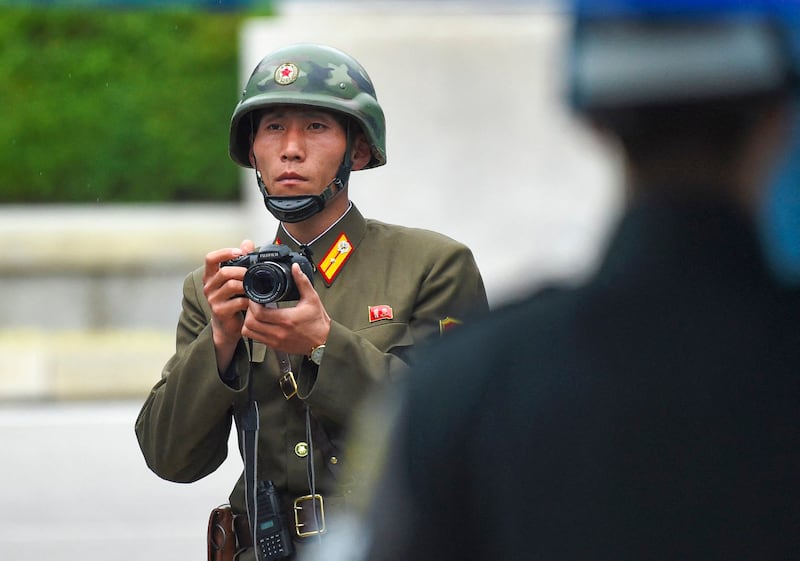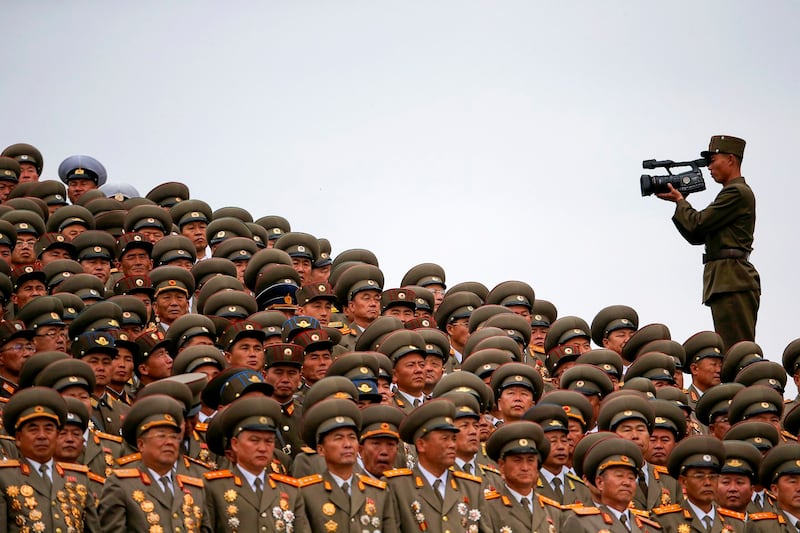To cut down on rampant bribery, North Korean customs agents checking truck shipments coming across the border from China are now required to wear body cameras, a customs official and a truck driver told Radio Free Asia.
That’s cut off a lucrative source of income for the customs agents, suddenly making it difficult for them to repay high-interest loans they took out to weather the COVID-19 pandemic, which shut down trade with China, the customs agent said.
“They borrowed at 100% annual interest, so their debt doubles every year,” a customs official, from the border city of Hyesan in Ryanggang province, told RFA Korean on condition of anonymity for security reasons.
“The reason they cannot receive bribes is because of the tiny cameras attached to their bodies,” he said.

Prior to the pandemic, customs officials were able to pad their paltry government salaries with bribes from smugglers who either imported banned items or lied about the volume of imports to hide profits from the government.
But when COVID hit, North Korea closed its borders to trade and the customs officials lost their livelihoods.
To survive, many borrowed money from donju – North Korea's wealthy class – promising to pay them back once trade with China resumed, the customs agent said.
Many border officials took out high interest loans of 30,000 yuan (US$4,100), and some borrowed as much as 150,000 yuan ($20,500).
They were used to living the high life and did very little to reduce their spending during the time that the border was closed, thinking it would be relatively easy for them to repay, the official said.
Unexpected twist
In May, trade resumed, but the border officials never foresaw that authorities would require them to wear body cams – making it nearly impossible to collect bribes.
“The reason why cameras were installed on custom officials and security agents’ bodies was because there were many cases of illegal Chinese mobile phones and SIM cards being smuggled into the country through customs trade channels,” the customs official said.
These Chinese cell phones allow people living near the border to access Chinese networks and call outside the country, potentially letting people pass along information North Korean authorities want to keep control of.
“This is fundamentally to block the path of internal secrets from being leaked outside the country through illegal mobile phones,” the official said.
Meanwhile, the loan sharks are pressing the officials to pay up.
"Hyesan customs officials and security agents are unable to go home at night," he said. "This is because the donju come to the homes of customs officials and security agents and abusively demand repayment."
A truck driver who used to drive through the border at Hyesan told RFA that it was easy for customs officials to spot smugglers and their smuggled goods.
“Customs truck drivers smuggled televisions from Chinese truck drivers until 2019,” he said.
He said that since the border reopened, all imported goods come on the backs of Chinese trucks, which are then unloaded into North Korean warehouses on the border.
North Korean workers who load and unload Chinese trucks used to be friendly with the Chinese drivers, sharing cigarettes and having casual conversations with them, but now they are told not to even make any verbal contact.
“If they say a single word with them, they will be immediately taken to the State Security Department for an investigation and be kicked out of their work group,” the driver said.

In the more unusual cases where North Korean trucks export goods to China, they are allowed to go only 400 meters (yards) into Chinese territory, and once empty back out – and are followed by security guards, he said.
With body cams now a requirement, some of the customs officials are doing whatever they can to transfer to other departments where the bribes might be a little smaller but at more easily accepted, he said.
“Security agents who monitor trade cargo do not hide the fact that they have small cameras attached to their bodies,” the driver said. “They advise cargo loading and unloading workers not to create any problems, as the whole day’s work is being recorded.”
Translated by Claire S. Lee. Edited by Eugene Whong and Malcolm Foster.
